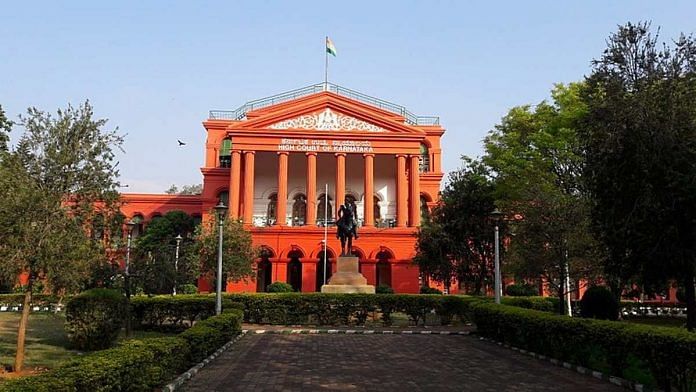New Delhi: The Karnataka High Court will pronounce its verdict on petitions questioning the hijab ban for Muslim girls in the Udupi Government Pre-university (PU) College at 10:30 am Tuesday, according to the court’s website.
The three-judge bench comprising Chief Justice Ritu Raj Awasthi, and Justices Krishna S. Dixit and J.M. Khazi has been hearing multiple petitions challenging the validity of the Karnataka government’s order on 5 February extending support to the restriction.
The order by the Karnataka government had stated that headscarf was neither a part of the uniform nor wearing it was an essential religious practice for Muslims that can be protected under the Constitution. It was passed under Section 133 (2) of the Karnataka Education Act, 1983, which empowered the state government to issue directives for government educational institutions.
Later, the Karnataka HC, in its interim order on 11 February, restrained all students from wearing religious clothing in colleges where a dress code was in force till the judgment was pronounced.
The petitioners, the Karnataka government and the college had all put forward their arguments in the case that involves important questions around constitutional rights, including that under Article 25 (freedom of conscience, faith and religion), Article 19 (right to free speech and expression), and the extent to which the state can impose fetters on the two fundamental rights.
The arguments
The petitioners had argued that the state government failed to establish the objective behind putting restrictions on wearing the hijab. They also argued that it was an “essential religious practice” under Islamic law and, thus, a constitutionally-protected right.
While the state had denied its involvement in the framing of the dress code guidelines, it also supported the college’s decision to ban the hijab as it was not an essential part of religious practice.
The college management also asserted that uniform rules were in force since 2004 and only came under question in December last year at the instigation of the Campus Front of India, the student wing of the Islamic organisation Popular Front of India.
Both state and the college management had also rejected the petitioners’ arguments that students’ fundamental right to live with dignity was violated because the ban was only in place in college and not the entire state.
Also read: Hijab, ‘narco jihad’, Ukraine students’ ‘lavish’ wants — what Right-wing press is writing about



